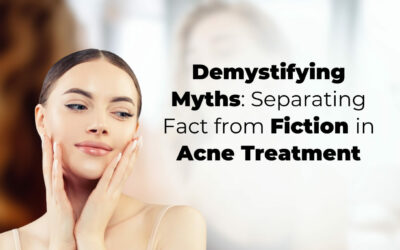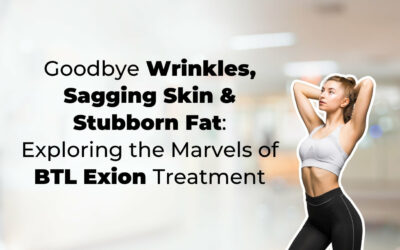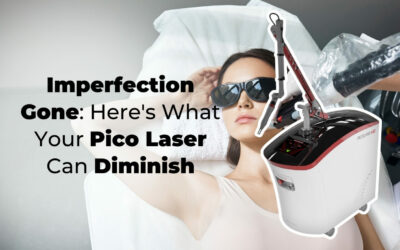The shoulder, back, chest, and shoulders are among the most often affected areas of acne. It is undeniable that acne can cause mental distress. Acne and acne scars on the face and other parts of the skin actually, can greatly impact how we view ourselves. As time goes by, it affects confidence and self-esteem, and they may even exacerbate anxiety or depressive symptoms.
If you have acne, you should know that it’s a common problem. Acne can be treated in a number of ways, and it depends on the severity of your acne (mild, moderate, severe). What is the best acne treatment? Read our full guide here!
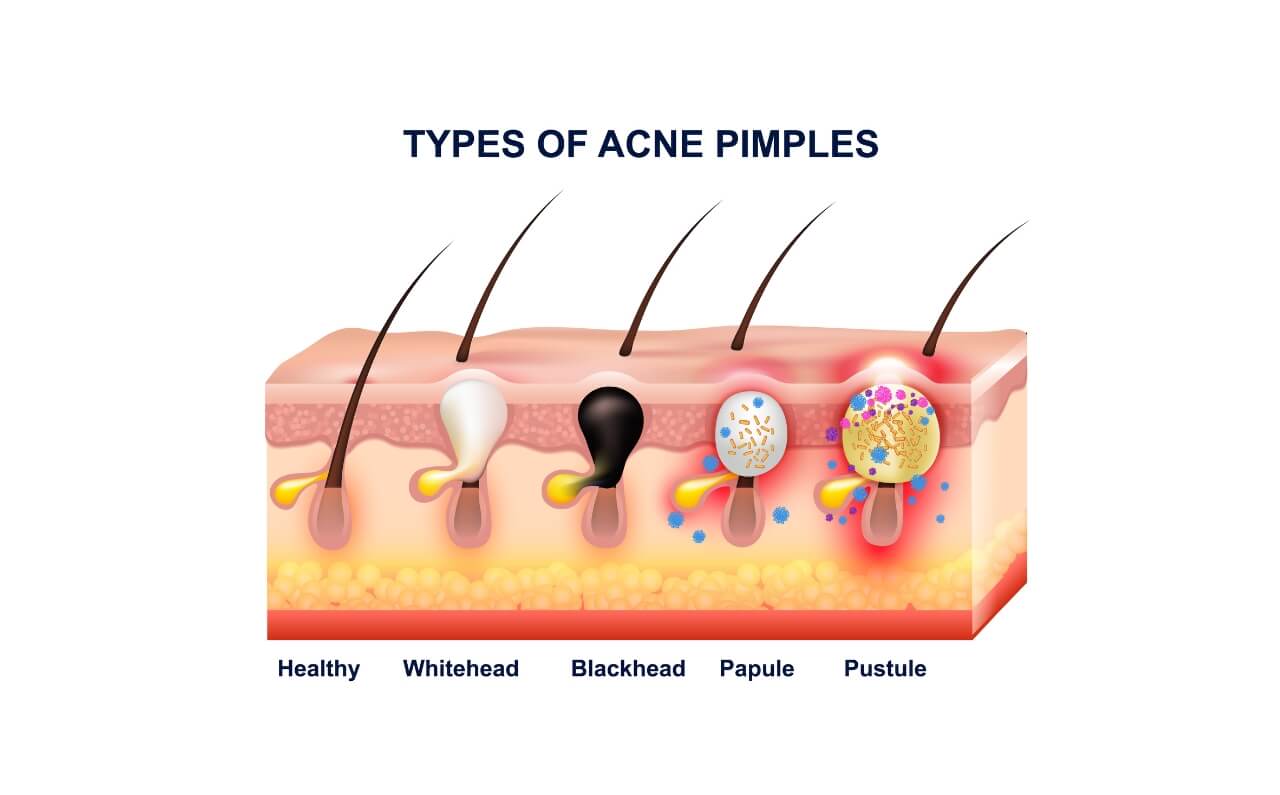
What are the types of acne?
Acne, or acne vulgaris, is a common skin disorder in which the pores of your skin get clogged. Pore blockages result in blackheads, whiteheads, and other types of pimples, such as pus-filled, occasionally uncomfortable bumps on your skin. Although most people view acne as a single skin condition, there are really various varieties of acne, including:
- Fungal acne is typically painful and itchy, and it happens when yeast accumulates in your hair follicles.
- Cystic acne is characterized by deep, pus-filled nodules and pimples that are highly likely to leave scars.
- Hormonal acne is caused by an excess of sebum, which clogs pores in adults.
- Nodular acne, commonly referred to as “puss-less” acne, is a severe form of acne that leaves pimples on the skin’s surface and painful, nodular lumps underneath.
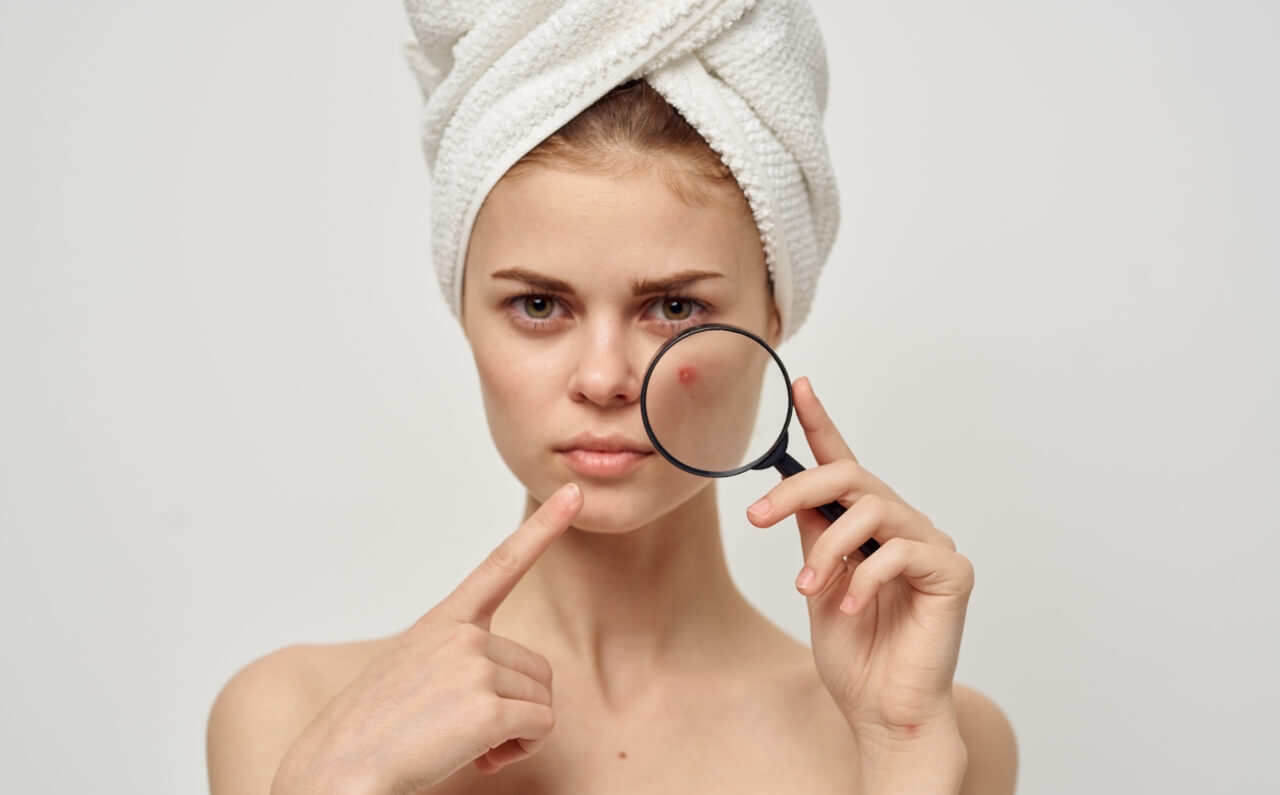
What causes acne (triggers acne)?
The most typical cause of acne is clogged pores or hair follicles. Imagine your hair follicles as tiny tubes that each hold a single hair strand; as a result, the hair follicles appear to be surrounded by a number of empty glands. So, your hair follicle clogs when there is too much substance (or “dirt”) inside. You can get pore blockage from:
- Sebum: An oleaginous substance that acts as a barrier of defense for your skin.
- Bacteria: Your skin naturally contains a tiny number of bacteria, but in excess, might clog your pores.
- Dead skin cells: Dead skin cells exfoliate to make place for new cells to grow. Dead skin cells might adhere in your hair follicles when they are released by your skin.
A pimple is produced when particles clog your pores and restrict your hair follicle. Commonly, you experience swelling and pain as a result of this causing inflammation on the skin, such as skin discoloration, redness surrounding a zit, and itchiness. Your environment can either cause acne or worsen an acne eruption. Some examples include:
- Wearing restrictive clothing and equipment, such as sports helmets and hats.
- Pollution in the air and specific meteorological conditions, particularly excessive humidity.
- Using greasy or oily personal care or skincare products, such as thick creams and lotions, or working in an environment where you frequently come into contact with grease, such as frying food at a restaurant.
- Stress, which causes cortisol levels to rise.
- Unwanted side effects of a drug or doctor’s prescription.
- Unsanitary pop your own pimples.
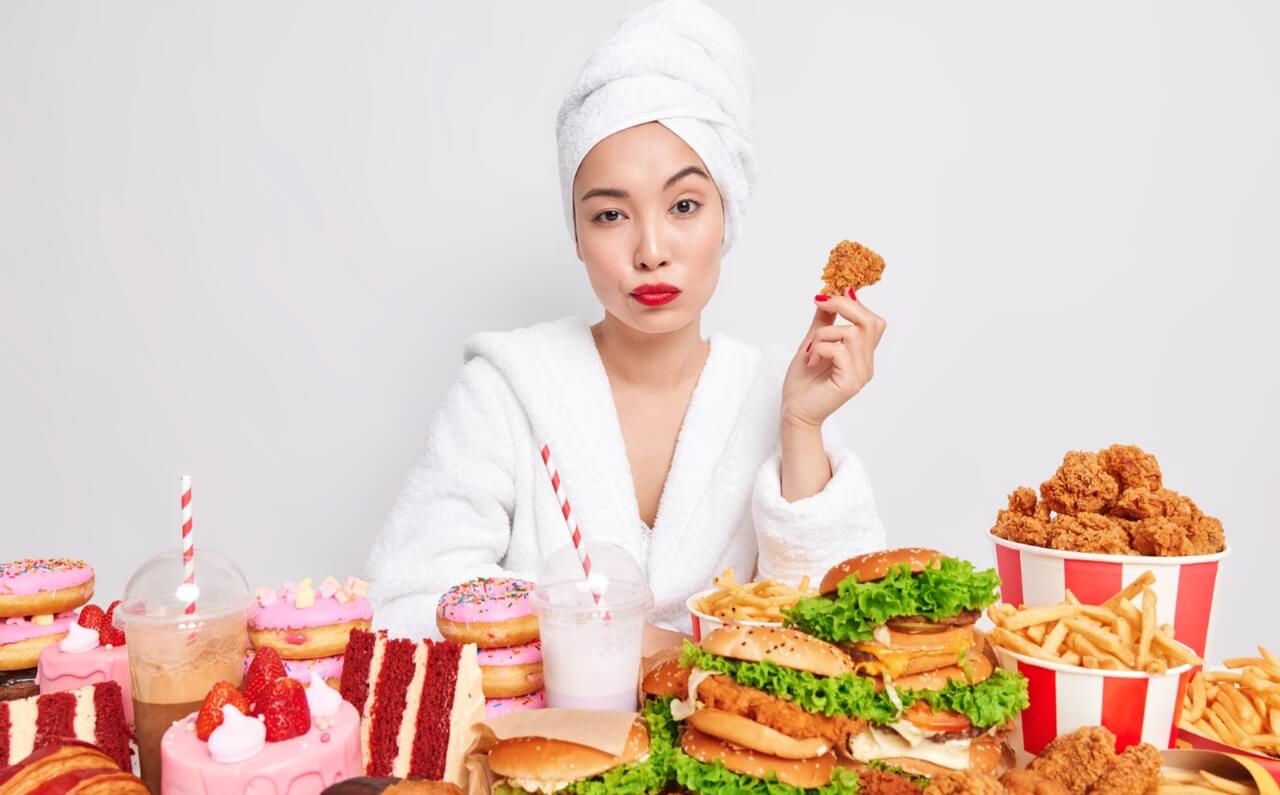
Can foods cause acne?
Studies have connected foods and diets including skim milk, whey protein, and sugar-rich diets may trigger acne. Though acne outbreaks may result from high-sugar diets, chocolate doesn’t directly cause acne. Eating a balanced, healthy diet that is high in fresh fruits and vegetables, especially those that are high in vitamin C and beta-carotene can help reduce inflammation in the whole body, which lowers your risk of developing acne, not just on the face but other parts of the body as well.
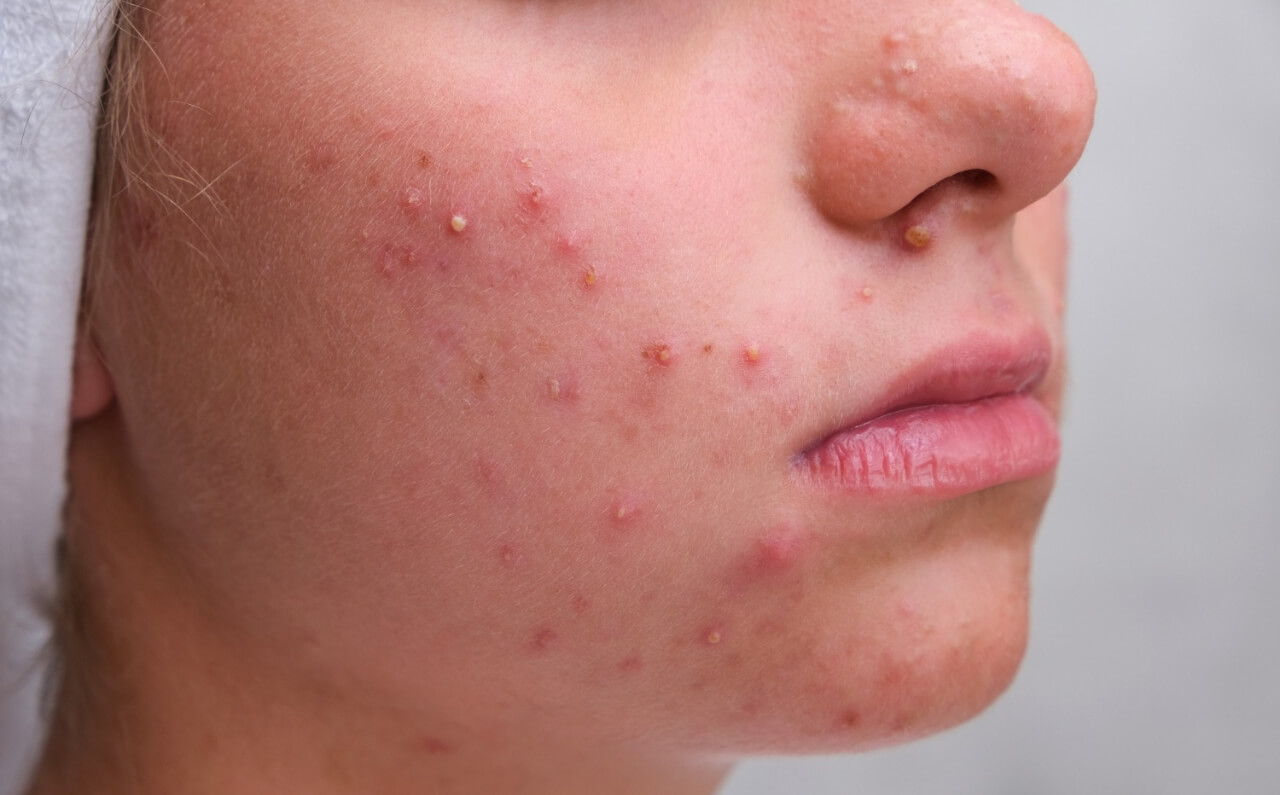
How do you know if acne is caused by hormones?
Acne is primarily a hormonal ailment that is fueled by testosterone and often emerges during youth and the early years of adulthood. Due to hormone activity, you might also observe acne developing around the time of your period. Fortunately, hormonal acne may often be quickly recognized. Hormonal acne will almost always show up on the chin and jawline. Hormonal causes of recurrent breakouts are also very likely.
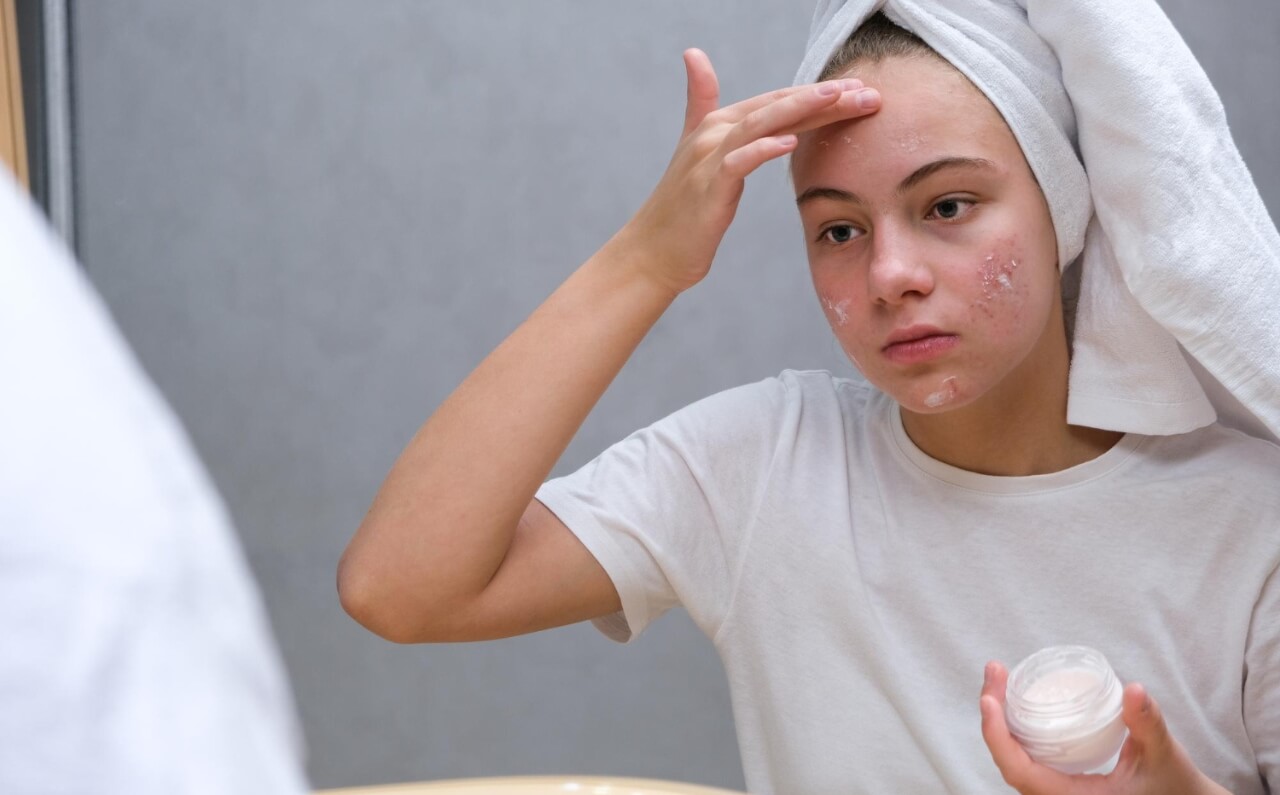
How to treat acne?
Acne can be treated in a number of ways, and it depends on several factors including your age, the type and the severity of your acne (mild, moderate, severe). After you’ve analyzed these factors, then only you can choose which treatment to follow. Doctors, or aestheticians, may advise you to use topical drugs such as acne creams, oral medications, or skin treatment to treat the skin faster and better. The purpose of acne treatment is to both limit the development of new pimples and to repair any existing skin imperfections.
Mild (1 day to 2 weeks)
To treat pimples when they are in their “early” stage, you can use over-the-counter (OTC) medicated lotions, cleansers, and spot treatments. When choosing an acne treatment gel, look for these ingredients as they are proven to show results in killing the acne bacteria and reducing skin inflammation.
- Benzoyl peroxide helps eliminate the bacteria that causes acne and aids in drying out existing pimples as well as preventing the formation of new ones.
- Salicylic acid aids in exfoliating your skin to keep pores clear of acne-causing microorganisms.
Moderate (2 weeks to 1 month)
If your acne doesn’t show any improvement even after a few weeks of using acne gel or spot treatment, this is a sign that you may want to think about seeking expert help. This is the stage where people usually consult a dermatologist or aesthetician to recommend other alternative skin treatments that can help you manage your symptoms better and avoid scars. Depending on the severity of your acne, a dermatologist might advise:
- Using skincare that contains retinoids such as retinol, or prescription-only benzoyl peroxide antibiotics in the form of cream or gel such as erythromycin or clindamycin
- In some instances, they could advise using hormonal birth control or an oral antibiotic to treat acne. These antibiotics are often only taken for a brief period of time. It is not to treat your acne but more or less to prevent the body from developing a resistance towards other medications.
Severe (1 month and onwards)
It is also common that some acne doesn’t respond to topical creams or treatment gels. So, in order to cure severe cases of acne and avoid scarring, both pigmented and physical scars, it is also likely that dermatologists or skin doctors will recommend some skin treatments. These skin treatments work better at eliminating damaged skin and lowering oil production. Some of the best acne skin treatment are:
- Photodynamic treatment. PDT utilizes a laser or special light and pharmaceuticals to lower bacteria and oil production. Acne and scars can also be improved with additional laser treatments.
- Dermabrasion. With a revolving brush, the top layers of your skin are removed during this sort of exfoliation. Instead of treating acne itself, the technique works best for addressing acne scars. A softer method of removing dead skin cells is microdermabrasion.
- Chemical peel. This works by exfoliation or removing the top layer of the skin (aka the most exposed skin). This is beneficial as acne scars are physical flaws. So when the topmost layer is removed, it shows the less damaged or baby skin beneath.
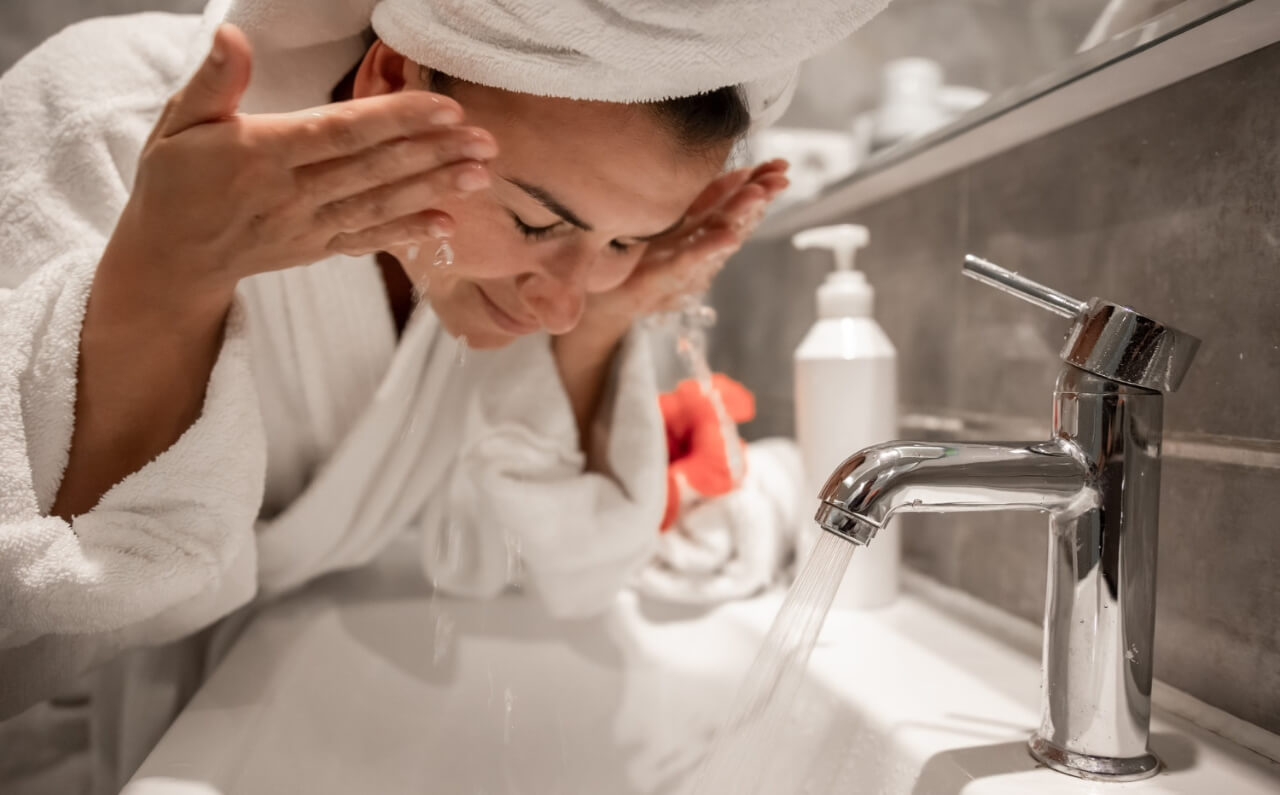
Home cures for acne
You’ve certainly seen a variety of home cures for acne, but please remember that they are not medical advice. Although they could be helpful to prevent acne for some people, their efficiency is still questionable and shouldn’t be used as the main treatment for acne.
Here are some DIY remedies to reduce inflammation and stop acne from growing worse rather than rubbing toothpaste on your face.
- Put some tea tree oil on. (beware, do not use essential oil!)
- Use aloe vera. (aloe vera soothes the skin, but not all products are formulated for the face skin)
- Apply a honey mask. (in-store honey may contain additional sugar which triggers acne)
- Green tea can refresh your skin. (good for detoxing free radicals, not treating acne)
- Never pop or squeeze a pimple. Your hands are 90% of the time dirty, so when you pop a pimple, it leaves a raw open space for all the bacteria in the air and on your hand to seep deep into the pore. And when these open spaces are not immediately cured, it may lead to big and deep acne scars.
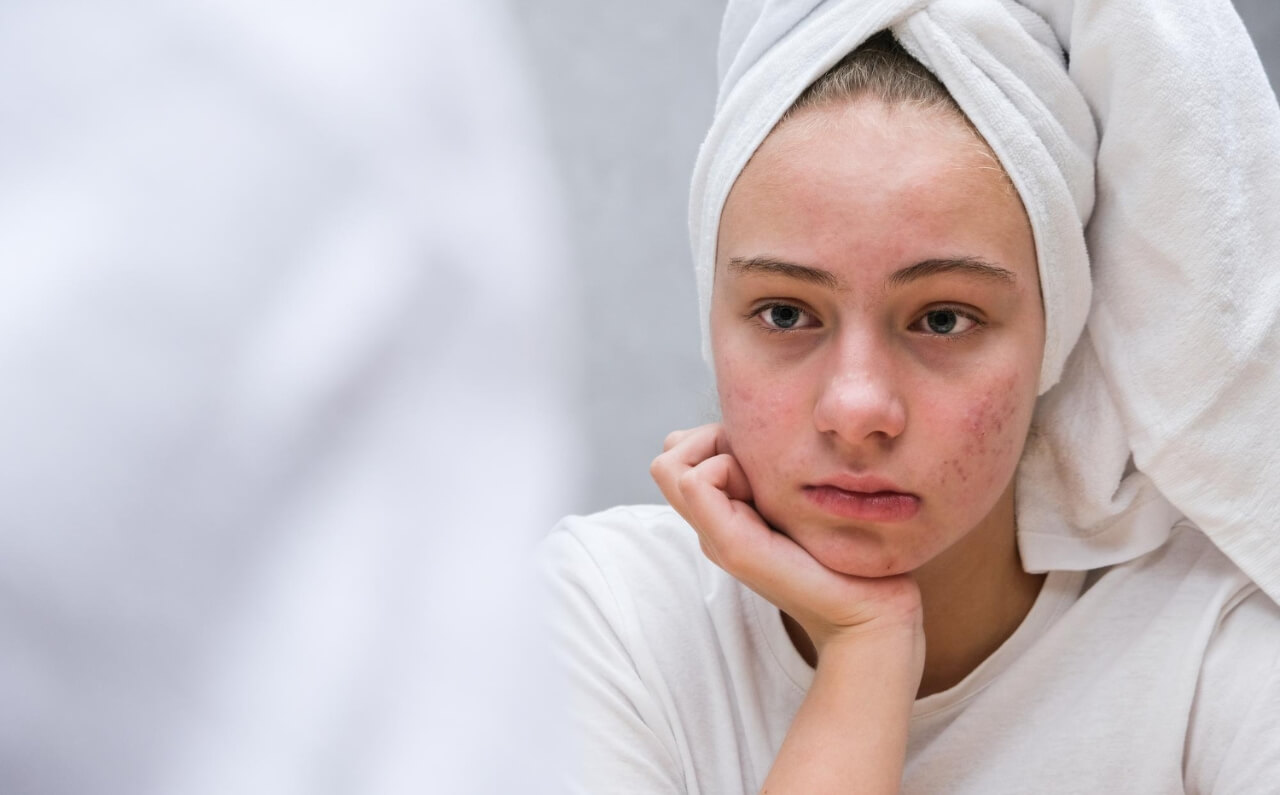
When should I start getting acne treatment?
If your acne is severe and worrying you, or if it doesn’t get better after weeks of using the medication your pharmacist advised, you should start to consider booking an expert’s consultation. Since acne can cause scarring and pigmentation on the skin, I always say that it’s critical to start treating acne as soon as possible. If your acne is severe, your doctor may recommend that you see a dermatologist (a skin specialist) or an aesthetician, who may advise you on the best course of action and the best acne treatment lasers or dermabrasion.

How do I get rid of my acne naturally?
-
Gently wash your skin.
When you wake up, when you go to bed, and after you work out hard, use a gentle cleanser. Avoid using astringents (alcohol-based toners), harsh scrub pads, or exfoliating cleansers every day. Cold water soothes the skin, or warm water (say no no to hot water!)
-
Regularly shampoo your hair
Clean your hair and scalp regularly, especially if it is oily. And avoid having hair products contacting the skin like hairsprays, hair mousse, etc. Also, do change your pillowcase regularly and oil build-ups on the sheets (when you sleep) can cause bacteria to invade your pores.
-
Do not touch your face or squeeze pimples at home.
Do not touch or rub skin lesions. Scars or black blotches may appear after plucking or squeezing blemishes. Unlike in clinics, skin experts used sanitized tools which greatly reduced the probability of infection.
-
Shave with caution.
Before using shaving cream, make sure the blade is sharp and soften the hair with soap and water. To lessen the chance of nicking blemishes, shave softly and only when required.
-
Use sunscreen or sunblock
This is a must! Not only do they work to prevent sunburn and tanning, many acne medications become not as potent when they are struck with UV radiation. Also, acne treatments are often exfoliating, so if the skin is not getting enough protection, acne scars have the probability of becoming pigmented (aka dark spots).
-
Avoid oil-based cosmetics
Pick your makeup wisely. All cosmetics and hair care items must be free of oils. Select items that are noncomedogenic, which implies that they don’t clog pores. However, even these products may exacerbate acne in some people.

Get rid of acne by eating healthier with the anti-acne diet
-
Diet with a low glycemic index
Reducing intake of high-glycemic-index meals, such as refined carbohydrates and added sugars, may help lessen acne lesions.
-
Lactose-free products
For some people, consuming dairy items like milk and ice cream makes their acne worse. Cheese and other non-milk dairy products don’t appear to aggravate acne, either.
-
Fatty acids and fat
The fatty acids omega-3 and omega-6 may lessen acne outbreaks.
-
Vegetarian and vegan diets
Vegan and vegetarian diets can be very healthy, but there isn’t much proof that they can effectively treat acne.
-
Probiotics
Probiotics, which are present in yogurt, other fermented foods, and supplements, may help to reduce acne, but there is currently no solid evidence to support their use in treating acne. But they help in keeping your gut healthy.

What questions should I ask my aesthetician?
- Do I have a certain form of acne?
- Just how bad is my acne?
- Do I require a dermatologist’s care?
- Which over-the-counter medicines would you suggest?
- What prescription drugs do you suggest?
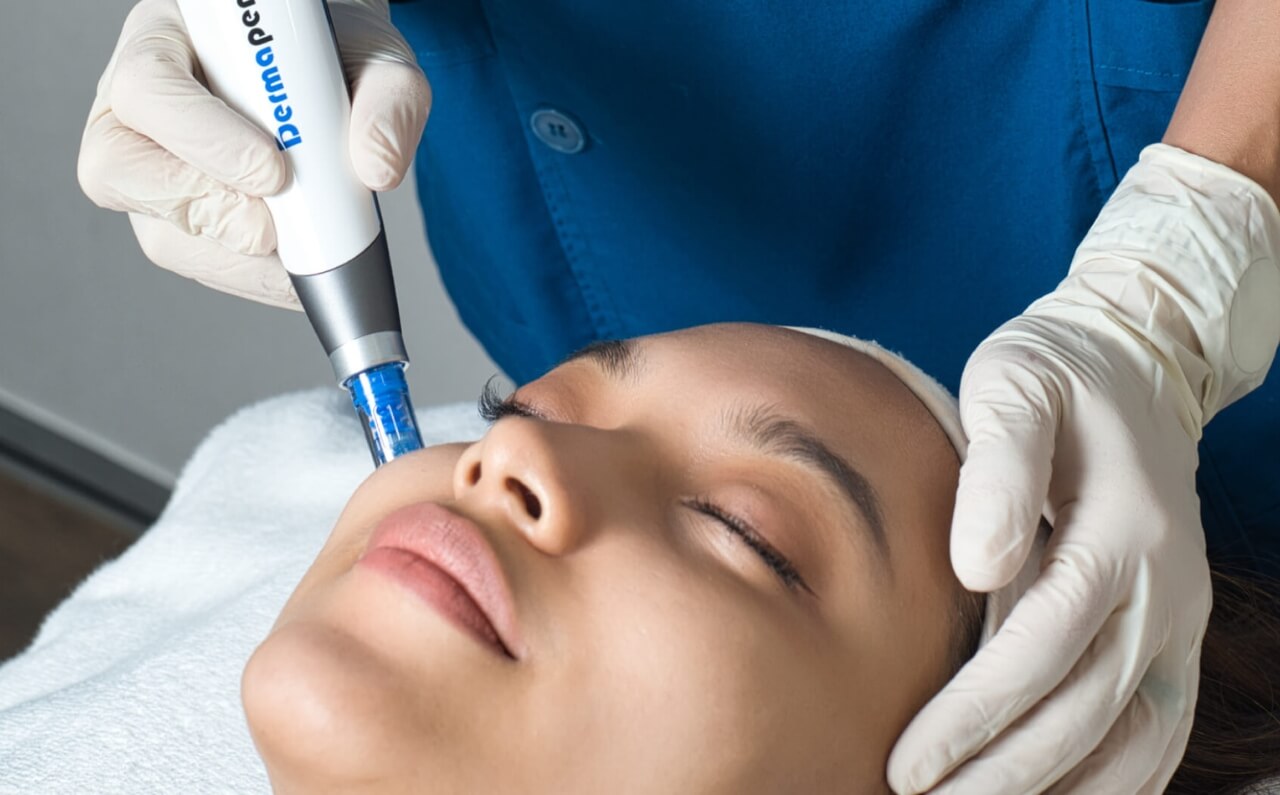
Best acne treatment (laser, microneedling, etc.)
Depending on the severity of your acne, your skin type, and your personal preferences, we at Dr. Abby Clinic will propose and customize the best therapy for you out of the many various types of acne treatments available.
-
Dermapen 4 Microneedling
A revolutionary microneedling tool that triggers collagen formation and a faster healing response by inflicting tiny, controlled wounds onto the skin’s surface. produces radiant, healthy skin with little downtime.
-
Theraclear Acne Therapy
For quick and obvious acne elimination, this skin treatment combines a gentle vacuum with painless therapeutic broadband light technology. It offers long-lasting results by treating many skin problems at once.
-
Laser Picocare 450
A Nd:YAG picosecond laser system called PICOCARE is used to treat pigmented lesions and tattoos with multiple colors. One of the most cutting-edge acne treatment technologies on the market, it excels in performance, speed, and use.
-
Oral Medications
Controlled prescription-strength acne treatments according to the patient’s age, acne kind, and severity. It functions by lowering edema and oil production or by treating bacterial infections.
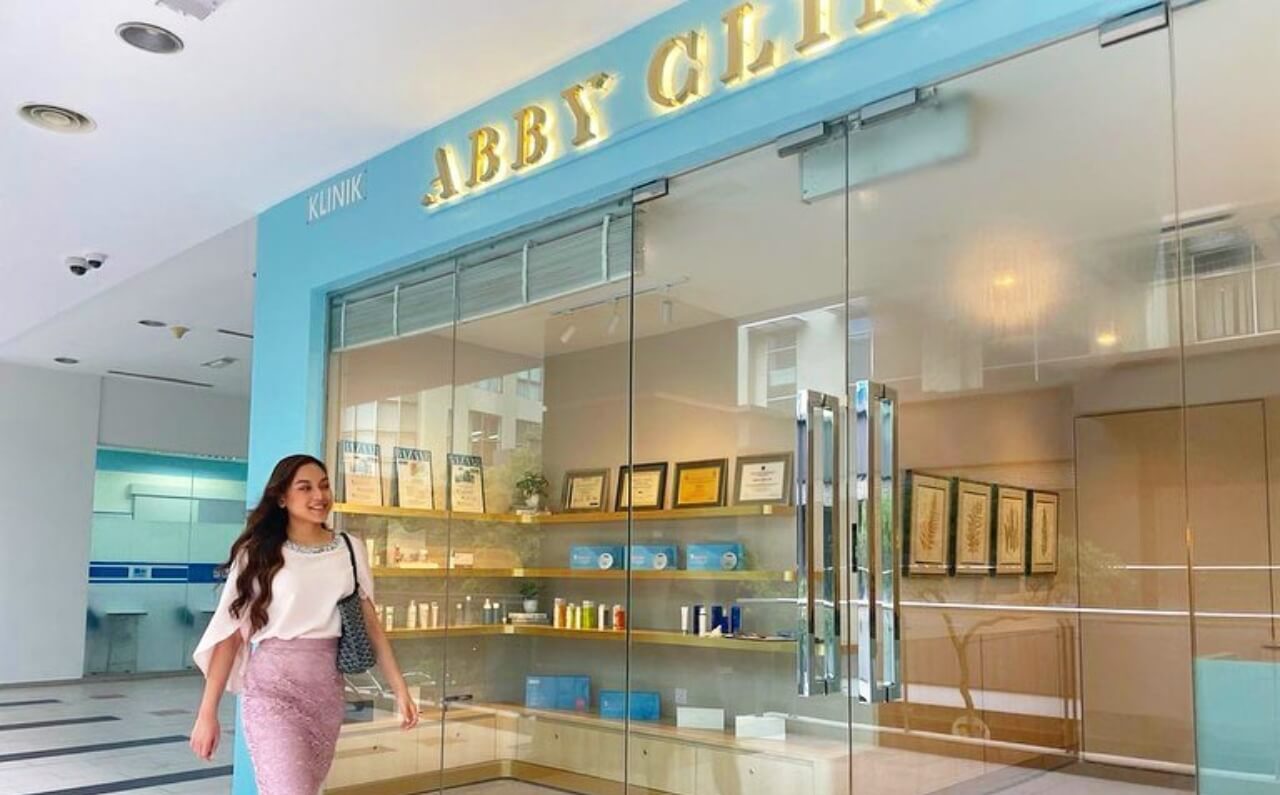
Why choose Dr. Abby Clinic for the best acne treatment in KL?
Our treatments are administered by LCP-certified medical professionals and licensed therapists. Your skin treatment will be 100% safe and effective because all of the therapies we offer have received FDA approval. In addition, Dr. Abby Clinic offers a straightforward price and rate without any additional or hidden fees. The treatments we advise are exclusively intended to produce the greatest skin outcomes for you to have the best possible customer pleasure.
Need to know more? Contact us right away!


